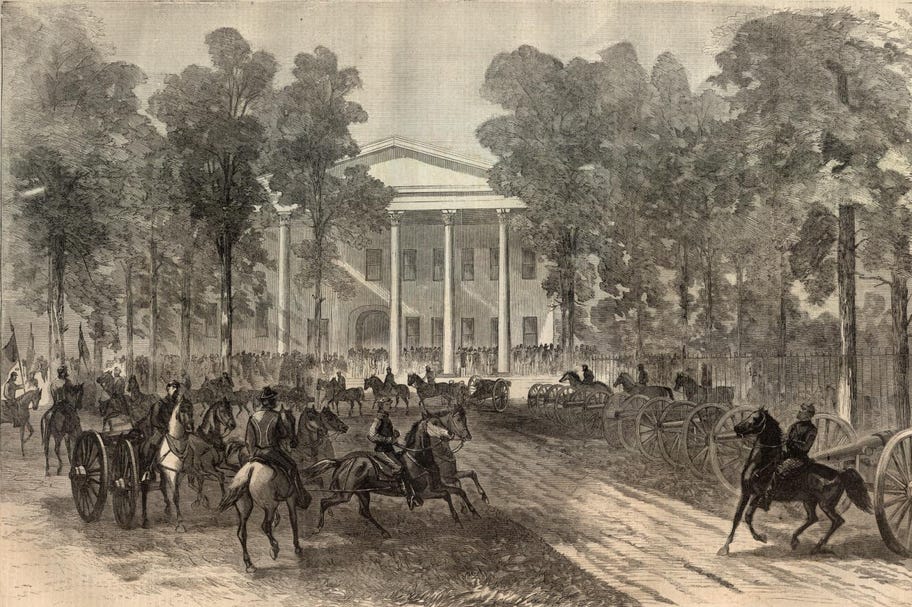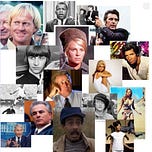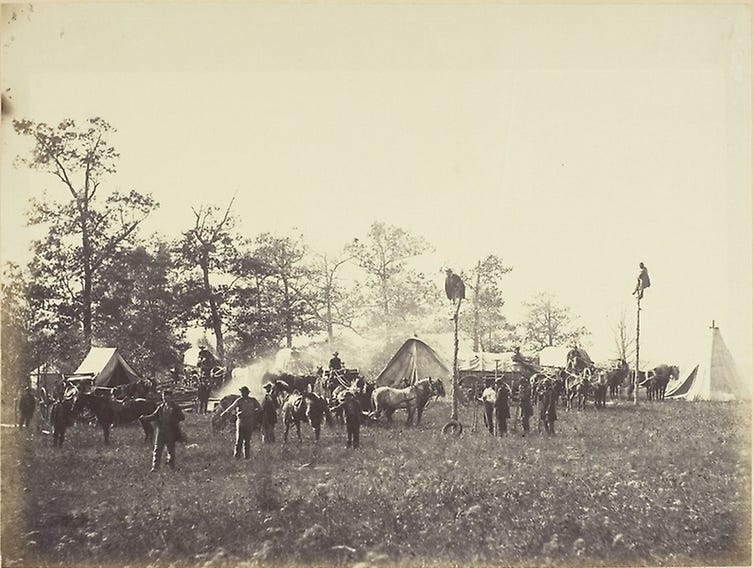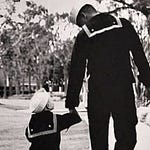The President’s best day.
For Lincoln, it was Saturday, July 4, 1863.
At 10:00 that morning, Confederate forces in Vicksburg surrendered to General Grant, ending his forty-seven-day siege of the Confederate river and rail transportation hub.
Grant’s victory gave Union forces control of the Mississippi River, effectively splitting the Confederacy in two.

At 3:00 in the afternoon on the day before, Union forces in Gettysburg had repelled Pickett’s Charge, inflicting devastating casualties on Confederate troops on the third and final day of the battle.
Lee was retreating south, ending his drive into Pennsylvania.
There would be no Confederate offensive in the North and European intervention in support of the Confederacy was now unlikely.
This turning point had come from the many advantages Lincoln held in prosecuting the war compared to his Confederate counterpart, Jefferson Davis.
Among them was the North’s extensive, integrated telegraph network, which brought war news to Lincoln quickly and enabled him to communicate directly with his generals, even in rural areas.
The War Department had recognized early the advantage that would come from instant communications and had taken control of all civilian telegraph companies at the start of the war.

Union telegraph operations were run from a single office on the second floor of the War Department building located next door to the White House.
It was in this room that war news was first received, and Lincoln crossed the White House lawn to visit the office several times a day.

Once there, he would commandeer a desk overlooking Pennsylvania Avenue and reach inside a desk drawer, where the telegrams were placed, one on top of the other, as they were received.
He’d read through the telegrams until he had reached deep enough into the drawer to find those that he had read during his previous visit, then chat with the young men who worked there.
For them, the days leading up to this Fourth of July had been exhausting, all night affairs.
So, early in the day, they had decided the good news called for a brief celebration and had sent a messenger out to the local pub to buy them a bucket of beer.
When the messenger returned with the beer, the young men had filled their glasses — a flagrant, but perhaps understandable, violation of War Department rules.
And then, in walked President Lincoln.
The chief telegraph operator tells the story:
“We were passing the [beer] bucket around when, to our astonishment and alarm, in strode the President.
“You can imagine our embarrassment. There was no use of attempting to deny or conceal.
“But he affected at first not to notice.
“Coming over to my [telegraph] instrument he asked to see the latest dispatch.
“He read it slowly and, turning to the [beer] messenger, Lincoln asked:
“‘What have you in that bucket?’
“Answering for the startled messenger, I explained what we were doing.
“‘Any beer left?’ said the President.
“I told him that we had drunk it all.
“‘Here,’ said Lincoln, pulling a twenty-five-cent piece from his pocket, ‘go and fill it up again.’
“[Then] he turned again to the telegrams.
“[When] the messenger arrived with the beer, Mr. Lincoln told him to pass it around.
“‘Mr. President,’ I said, ‘If I get a glass will you not do us the great honor to share the beer with us?’
“‘Never mind the glass,’ he replied: ‘I’ll drink when it comes my turn.’
“Of course, we all insisted that he take the first drink, and with the message reporting Grant’s victory still clutched in his hand, President Lincoln grasped the bucket with both hands and, tipping it up, drank heartily.”1
The Confederates’ path to victory had been foreclosed.
It was a very good day.
******************************
I’ll see you tomorrow.
— Brenda
“Intimate Memories of Lincoln,” by Rufus Rockwell Wilson, 1945.






















Share this post